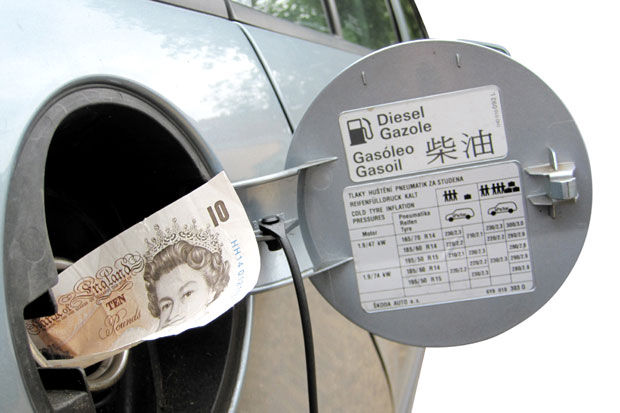9 August 2019
Fleets braced for fuel price surge on weak pound and Middle East tensions
Fleet fuel costs may be set to rise due to rising oil prices combined with tensions in the middle east.

Fleet fuel costs could be set to rise significantly amid a ‘perfect storm' that may send the price of petrol and diesel to 2019 record levels.
A "nasty combination" of rising oil prices, notably due to rising tensions in the Middle East, and a falling pound means that August could prove to be a very "costly month on the UK's roads", according to the RAC.
Consequently, the motoring organisation is warning that the price of a litre of unleaded petrol could "easily" go above the 2019 high of an average 130.67p seen at the start of June and diesel exceeding the year's high point of an average 135.54p at the end of May.
If the average price of a litre of unleaded petrol passes the year's high - it stood at 129.21p at the end of July - and the October 2018 figure of an average 131.58p a litre it would reach the highest cost for more than five years (131.61p a litre in July 2014). The all-time high average price of a litre of unleaded petrol is 142.48p in April 2012.
The average price of a litre of diesel was 131.95p at the end of July so is someway off last year's high of 136.94p a litre recorded in October 2018 and the previous highest of 137.17p in March 2014. The all-time high average price of a litre of diesel is 147.93p recorded in April 2012.
Oil is traded in dollars and last month the pound lost 3% on the dollar, a downward trend that has continued in August with sterling reaching a 31-month low. Experts say it is due to both sterling weakness as a result of Brexit and the dollar's strength.
The website www.Poundsterlingforecast.com said: "With no deal preparations in full swing in the UK and under the leadership of the new Prime Minister Boris Johnson, the pound has reacted negatively to the increased likelihood that the UK may leave without a deal. There is also a growing chance that there could be a general election considering Mr Johnson has a majority of just one in the House of Commons."
The price of a barrel of oil has been fluctuating between $60 and $70 since the end of May amid concerns over global demand, particularly about supply due to tanker hijacking issues in the Strait of Hormuz through which a third of the world's sea-borne oil supply is shipped and talk of an economic slowdown in China.
RAC fuel spokesman Simon Williams said: "July saw a return to rising pump prices. While there were only relatively small rises in both petrol and diesel, the situation might have been far worse if the drop in the value of the pound had combined with the higher mid-month oil prices. And, of course this could still very easily prove to be the case if the pound doesn't recover in the next few weeks.
"Drivers can only hope we don't see the nasty combination of a rising oil price and a falling pound. If we do, August could prove to be a very costly month on the UK's roads. This could easily lead to petrol going above the 2019 high of 130.67p seen at the start of June and diesel exceeding the year's high point of 135.54p at the end of May."


